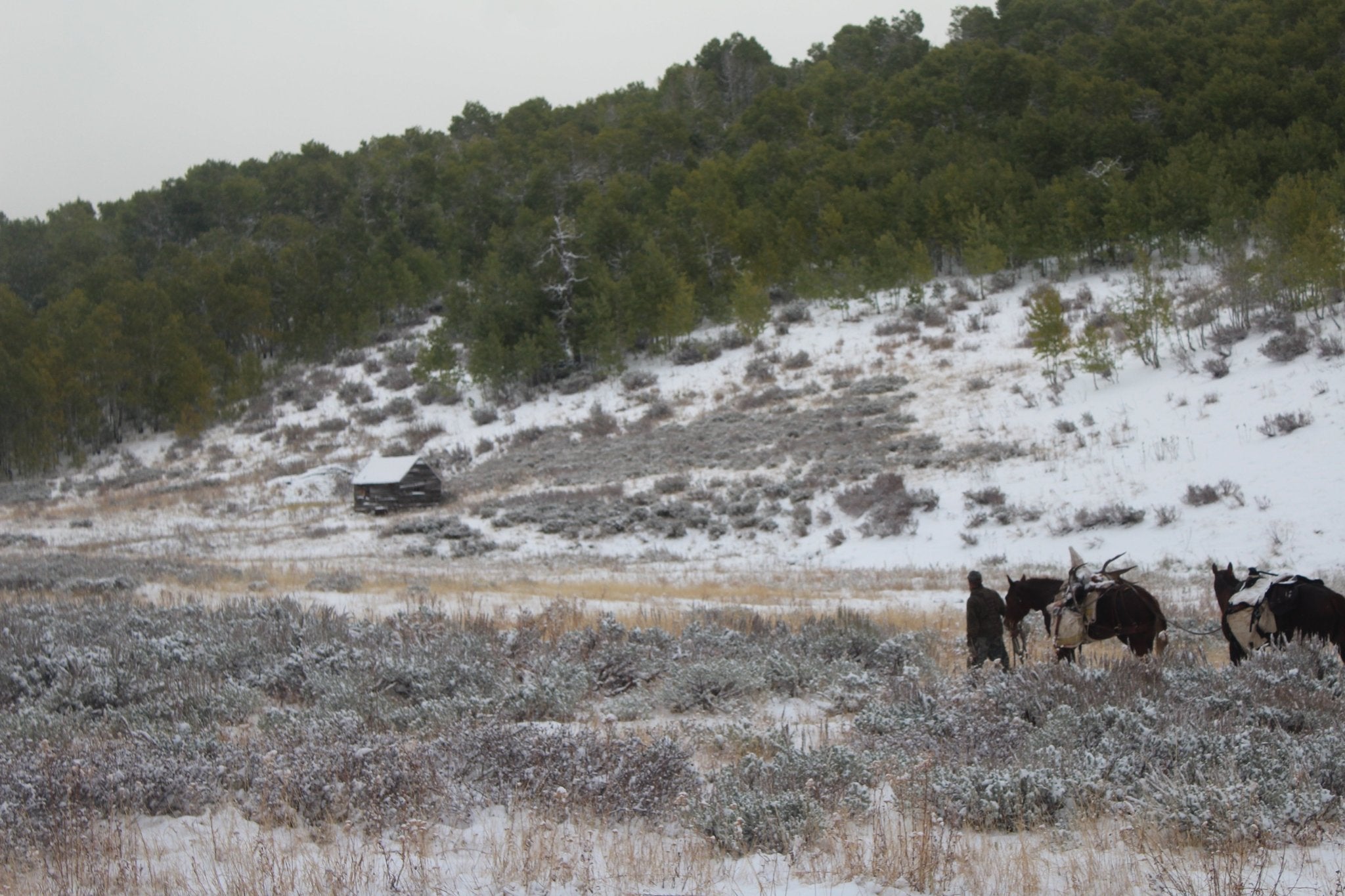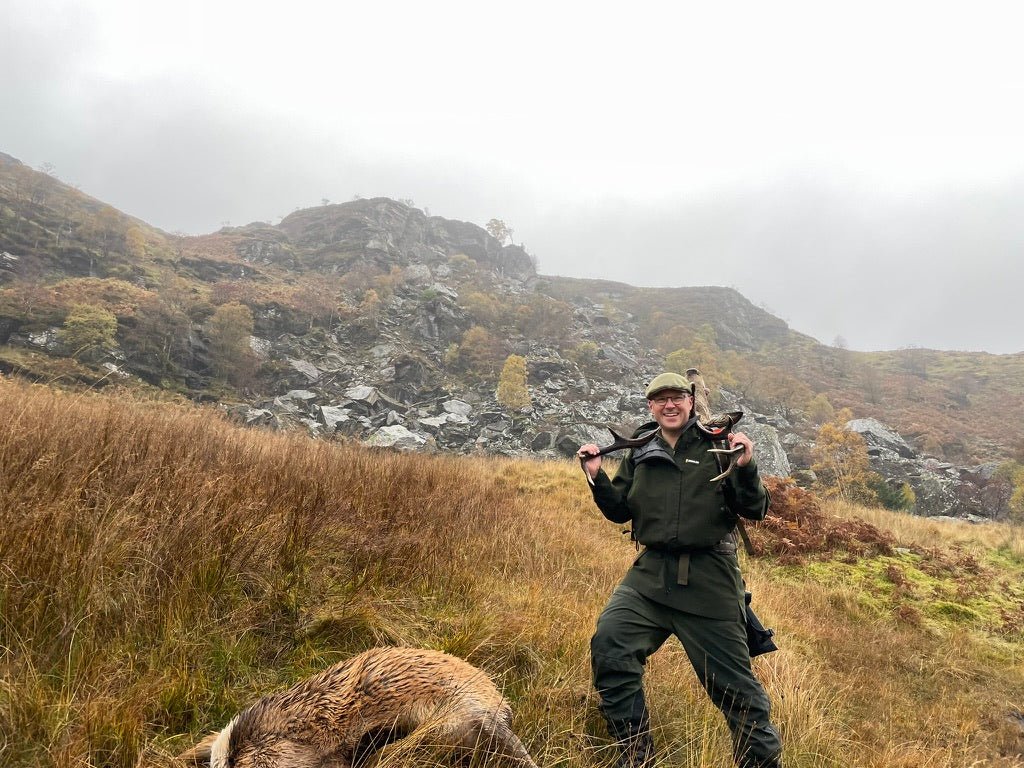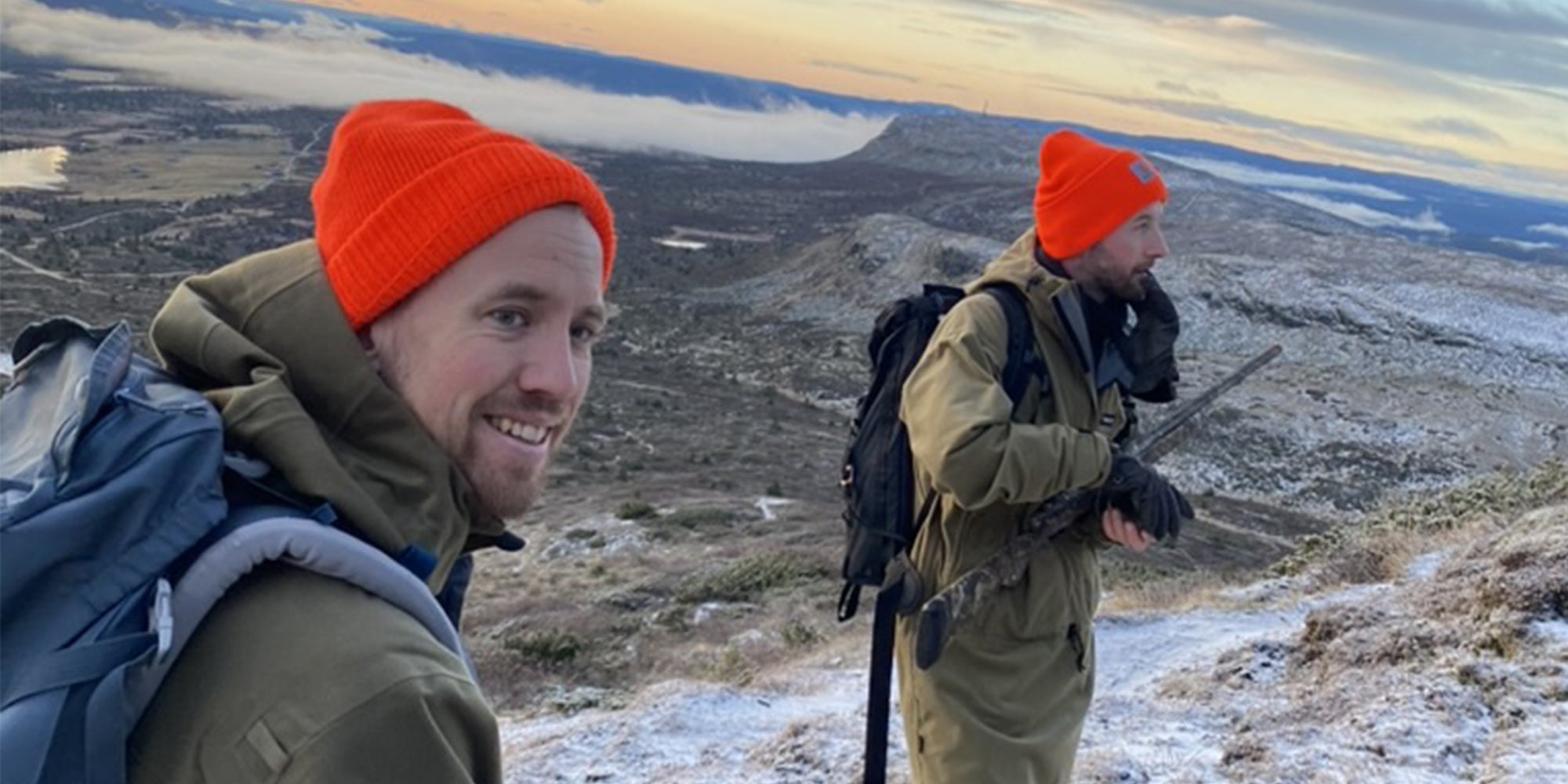
In this off-season time, a little forward thought can make or break your hunting plans. A dream trip can turn into a nightmare if you don't take care of yourself.
When I look upon the mountain face, I relive it. That weird sensation when the ache of soreness pairs with the burn of exhausted muscles. There was no way around it at the time. There was only one window of hope to get me back to the truck. Pure grit.

A pack full of meat is the goal, but it can also bring punishment. Most hunters welcome this. “This is where the work starts.” Most say as they unsheathe knives and begin breaking down the carcass of a successful hunt. The reward at the end of the journey. But I have been exhausted to the point of hibernation at home soaking in warm baths, eating copious amounts of ibuprofen trying to get back to normal day to day life. I felt like I was forced to complete an ultra-marathon instead of doing something I enjoyed. As a teenager cutting myself on mountain hunting, I have come to learn things the hard way, usually paid for by long uphill pack outs and following with sore shoulders, feet, and legs. Let us be honest. If you have earned it, you know it. Feeling like a rusty pair of pliers after a long hunt is normal to hunters that put in the effort. But with a little planning in the off season, you can alleviate some of the post hunt pain and suffering.
I hunt deer in a remote and rugged mountain range in Utah yearly. My first experience into that magical mountain country above the timberline was one to remember. The reminder that if you are dumb, you better be tough is a great way to sum up our adventure that weekend in October. In this off-season time, a little forward thought can make or break your hunting plans. A dream trip can turn into a nightmare if you do not take care of yourself.
Mistake #1
Make weight. I'm not a fitness guru. I'm not a gym rat. But I do know that on physically demanding hunts, the weight catches you quick and can bog you down in no time. Having to take my belt out an extra notch at times seems to have a few more consequences than my wife poking fun of my “dad bod”. I am comfortable with lacking six pack abs. I've not seen a Greek or roman sculpture that quite captures my physique. But just like a championship boxer, I know that I need to “make weight” before leaving the trailhead. I have a sweet spot when it comes to my size. I am 5’ 8” tall and my ideal fight weight is 165-170 pounds (74-77 kgs). I have learned that being fifteen pounds overweight makes things hard. Your body goes through a lot of extra effort, and it’s harder for me to recover. The first year I hit the trail head at 185lbs (83 kgs). I was strong but got winded easy. In other words, I was flat out of shape. The next year I came back at 155 lbs (70 kgs), vowing that the mule deer high country wouldn’t eat me alive like it did the year before. I improved in all aspects. I did not need as much rest time and genuinely felt a lot better until it was time to pack out camp and carcass. I did not have as much strength in my legs bearing the extra weight. I tired quickly when I walked out with sixty extra pounds of meat, bone and hide. I became worthless.
I'm not here to preach about physical fitness, or to pitch you a fad diet. I'm just saying, figure out your fighting weight and stick to it.
The next year I focused on thinning down a little but wanted to land in the sweet spot. I rolled into camp at 165 pounds (74 kgs) the third year. I had the same abilities I had at 155 (70kgs), but I had more strength. The pack out wasn’t nearly as painful, and I finally felt like I was running on high octane and all of my cylinders were firing. I finally was not fighting my body. I'm not here to preach about physical fitness, or to pitch you a fad diet. I'm just saying, figure out your fighting weight and stick to it. Famished hunters are weak when hunts drag on for days, and chubby hunters struggle when it’s time to cover ground fast or gaining elevation.
Mistake #2
My first trip out into the mule deer mecca due to being out of shape and overweight, we got half way to our final destination and decided to call it a night. We were on a steep face but off the ridge, out of the wind. We decided to call a couple of deer beds home for the night. After lashing the tent down we laid in our sleeping bags with our feet down hill and concluded that we could get a couple hours of sleep, wake up early and continue our trek in the dark, making it to the ridge line where we originally wanted to camp just before sun rise. This plan may sound like a decent one, but we reconsidered after the tent lost its anchors around 2 o’ clock in the morning sending us 10 meters down the canyon inside the tent. I was impressed to find my head lamp considering we had survived the equivalent of a run through a clothes dryer.

Hiking on little sleep and then a long pack out after, wasn’t worth the time we saved creating a better game plan. Try to take care of yourself in the bush. We all know that you can’t stay at a 5-star bed and breakfast, but try to make it comfortable.
In muley camp, I packed a shovel in with me during summer scouting season and found a spot just off the ridge line out of the wind. I’m in the vicinity of an old wildfire scar, just inside the burnt trees. Since I'm hunting this spot in mid-October, I’m not worried about shade, but rather I want to be in the sun. I can use the sunlight to dry clothes if needed, and I’m not in the cooler temperatures that the shade would provide. If I catch a fall snow storm the snow will melt here first. But if you're in the desert and hunting in the summer heat, shade is a priceless commodity. I can hang supplies or a meat cache in the burnt trees to keep them from scavengers that might get them if I had them on the ground. It also keeps tripods, bows, and other things that don’t need to sleep in the tent with me, out of the dirt and mud. In the ground, I took a shovel and dug out a level spot the exact size as my one-man tent and have gathered enough big rocks to tie my tent to as anchors. Having a level spot to lay down without a rock in your back might sound overrated for one night, but by day 10 it might have a bigger impact on morale and soreness than one might think.
Camp comfort is one of the things that are ranking higher on my priority list as I get older. If weather moves in and you are stuck in camp for an extended period, the comfort of a well thought out location and the little things become big things before you know it.
Getting a good night’s sleep helps your body recover when you’re covering lots of ground in search of your quarry.
Mistake #3
Caching
Another expensive trip mistake I made was packing everything with me in one trip. In my deer spot, the only water in the area is on private land. I can’t access it. What that translates to is lugging jugs of water into my hunting camp. Making a backpack normally weighing 35-40 lbs (15-18 kgs), weighing 50-60 pounds (22-27 kgs) by just adding water rations. This is one of the main reasons I don’t typically compete with a lot of other hunters in this area. I spent most of my fresh legs just getting everything to hunting camp. By the time I got there, I already had dealt with lots of sweat, muscle cramps and sore shoulders and it wasn’t even opening day. I have since experienced much sweeter circumstances by taking in most of my equipment and rations in a week before go time. By taking water jugs and a lockable container full of food I was able to up my supply by packing more, but also my pack is lighter on the hunt allowing me to conserve my legs for when it really matters.
Great things to haul into camp early are nonperishable food, water and your tent. Cut your firewood and get it stacked so you don’t have to scavenge around for it when you really need it (Which is usually after a long day and in the dark).
This can also kill two birds with one stone because while you are up there you can scout around for the upcoming hunt.
Mistake #4
Keeping your body fueled
Just when things seemed to get better on our trip, I was hit with another challenge that could have been easily avoided. In short, a can of soup and a box of granola bars just didn’t cut it.
It might be tricky to figure out what you’re going to want to eat after a good day’s worth of hiking and beating the brush. Even though I might have a craving for a juicy double cheeseburger from my favorite fast-food restaurant, doesn’t mean I can always have what I want. But what I do want is calories and lots of them. If you want to figure out the nitty gritty nutrition, you can have a diet coach run the numbers on the macronutrients and calories you’ll need to fuel your body during the hunt. If you have those numbers, you can prepack your meals or daily food ration in a vacuum sealed bag after its put together to make it easier to keep it organized. Even if you do not have the numbers, this method makes it pretty straight forward. It is important to keep meals organized and making sure you eat enough throughout the day, or don’t overeat your ration and run out of food.
I always try to make sure I have meals chosen that can be supplemented with fresh meat if I have any luck in either killing a grouse or catching a fish. A travel size container of olive oil and some seasoning is also a fantastic way to enhance any feast off a fresh kill. There are certain foods I always associate with hunting camp though. Here in the states, it might be hard pressed to find a camp without canned sausages, sardines, or jerky. It’s funny how somethings can taste great on the mountain but if you serve it on a plate at your home dinner table, you might just scrape it into the trash bin. With that said, I also like to pack some snacks that remind me of home. It could be small candy bars or the cookies I might talk my wife into baking for me. It’s more of a comfort food, but at the end of the day I could use a pick me up.
Look into running and performance foods when compiling your menu and grocery list. The running and endurance sport markets bring some pretty interesting snacks into the marketplace that might be worth a try as well.
If I have one word of advice on this topic, please try your new menu items at home. I have had to choke down a few disgusting dehydrated meals because the label made it look a lot more appealing than it really was, but it was the only thing I had to eat.
Keep your body fueled, and your body will return the favor.
Mistake #5
Realistic expectations
Even though you can do mile after mile to the top of the mountain, you need to think about the next day, and the day after that. Realizing that after an ass kicking hike your legs aren’t going to feel the same the next day can be your ticket to staying in the bush longer. Your legs are going to tire faster, I might sound obvious here, but please plan for it. The goal is to be on your best game when the moment of truth comes. Plan for rest days! This might sound like I’m trying to be the negative voice in the back of your head, but I’m just saying when you map out your trip don’t book back to back 15 mile days. For example, I might hike eight miles on day one but I’m getting to a spot where I can spend 2 days hunting a basin, spending majority of my time perched on a high point looking through my optics. Day 3, I will hike to the next spot that might be 5 more miles into the back country.
Give yourself ample time to cover ground. My goal is to be just as ready to take advantage of an opportunity on day 7 as I am on day 1. I look at my hunts as a marathon, rather than a sprint.
Having realistic expectations while hunting can save you from burn out and ultimately going home early.






Share: